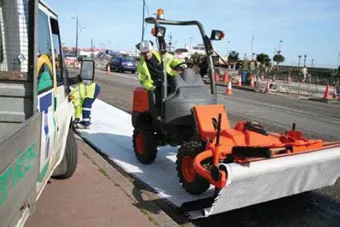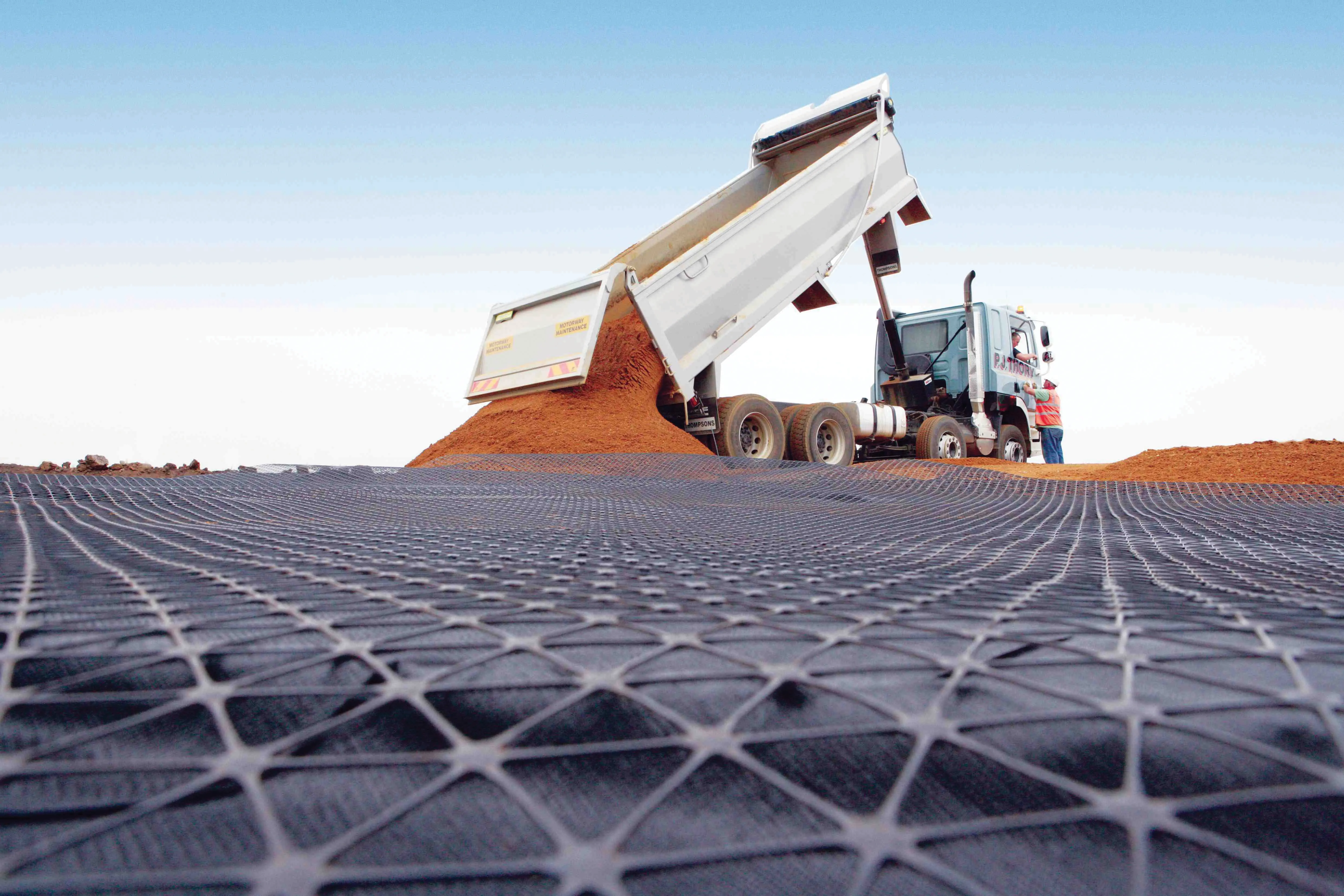In the UK, Foster Contracting was part of the team that carried out road improvements to the main route along the historic promenade of the seaside town Great Yarmouth, in eastern England. The harshness of the sea environment coupled with traffic loading caused the road surface to deteriorate, leading to brittle cracking of the thin surface course and also reflective cracking from overlain service trenches and patches. The town centre was already undergoing a major regeneration and as part of this scheme, i
July 17, 2012
Read time: 2 mins

In the UK, Foster Contracting was part of the team that carried out road improvements to the main route along the historic promenade of the seaside town Great Yarmouth, in eastern England.
The harshness of the sea environment coupled with traffic loading caused the road surface to deteriorate, leading to brittle cracking of the thin surface course and also reflective cracking from overlain service trenches and patches.
The town centre was already undergoing a major regeneration and as part of this scheme, it was decided to carry out essential carriageway repairs to Marine Parade. Core samples showed the existing road construction comprised a thin pavement with a maximum of 125mm of asphalt overlaying sand and gravel.
To prolong the life of the new road construction, the polymeric geocomposite, PGM-G 100/100, manufactured by1631 TenCate Geosynthetics, was installed to retard the formation of reflection cracks in the bituminous inlay as well as to seal cracks in the underlying layers and prevent penetration by water and oxygen; reinforce the asphalt layers of the carriageway, and prolong its life.
TenCate PGM-G 100/100 paving geocomposite is a mechanically bonded continuous filament non-woven geotextile made from 100% polypropylene and reinforced with high modulus glass filaments, which allows construction plant to traffic the geocomposite during the surfacing operation without damage or picking up.
Contractor Ennstone Johnston planed 40mm off the carriageway, cleaned the exposed surface, and filled exposed cracks greater than 4mm wide to ensure a 100% bond between the planed surface and the paving fabric.
TenCate's specialist installation contractor, Foster Contracting, used its calibrated tanker to spray a bond coat of 160/220 pen bitumen (approximately 1litre/m² at 180°C) onto the planed surface. It then used its bespoke laying machine to install the PGM-G 100/100 under tension onto the hot bond coat.
Finally, Ennstone Johnston overlaid the PGM-G 100/100 with 40mm of a polymer modified proprietary overlay, and a total of 7,000m² of road refurbishment was successfully completed over a seven-day period.
The harshness of the sea environment coupled with traffic loading caused the road surface to deteriorate, leading to brittle cracking of the thin surface course and also reflective cracking from overlain service trenches and patches.
The town centre was already undergoing a major regeneration and as part of this scheme, it was decided to carry out essential carriageway repairs to Marine Parade. Core samples showed the existing road construction comprised a thin pavement with a maximum of 125mm of asphalt overlaying sand and gravel.
To prolong the life of the new road construction, the polymeric geocomposite, PGM-G 100/100, manufactured by
TenCate PGM-G 100/100 paving geocomposite is a mechanically bonded continuous filament non-woven geotextile made from 100% polypropylene and reinforced with high modulus glass filaments, which allows construction plant to traffic the geocomposite during the surfacing operation without damage or picking up.
Contractor Ennstone Johnston planed 40mm off the carriageway, cleaned the exposed surface, and filled exposed cracks greater than 4mm wide to ensure a 100% bond between the planed surface and the paving fabric.
TenCate's specialist installation contractor, Foster Contracting, used its calibrated tanker to spray a bond coat of 160/220 pen bitumen (approximately 1litre/m² at 180°C) onto the planed surface. It then used its bespoke laying machine to install the PGM-G 100/100 under tension onto the hot bond coat.
Finally, Ennstone Johnston overlaid the PGM-G 100/100 with 40mm of a polymer modified proprietary overlay, and a total of 7,000m² of road refurbishment was successfully completed over a seven-day period.







